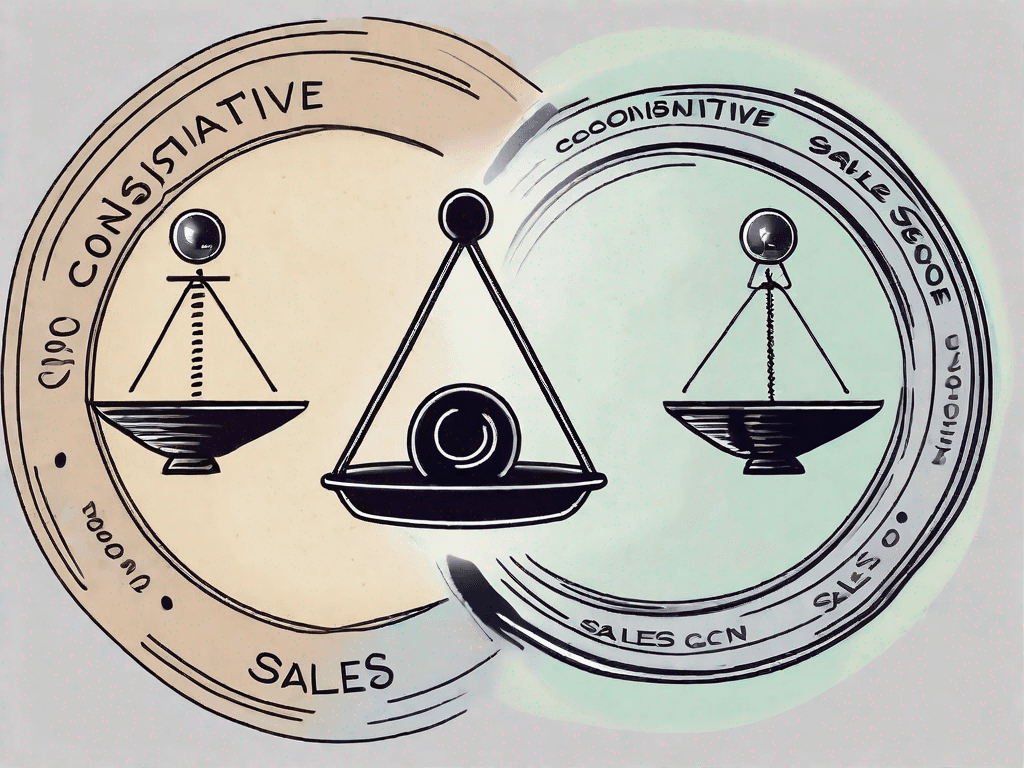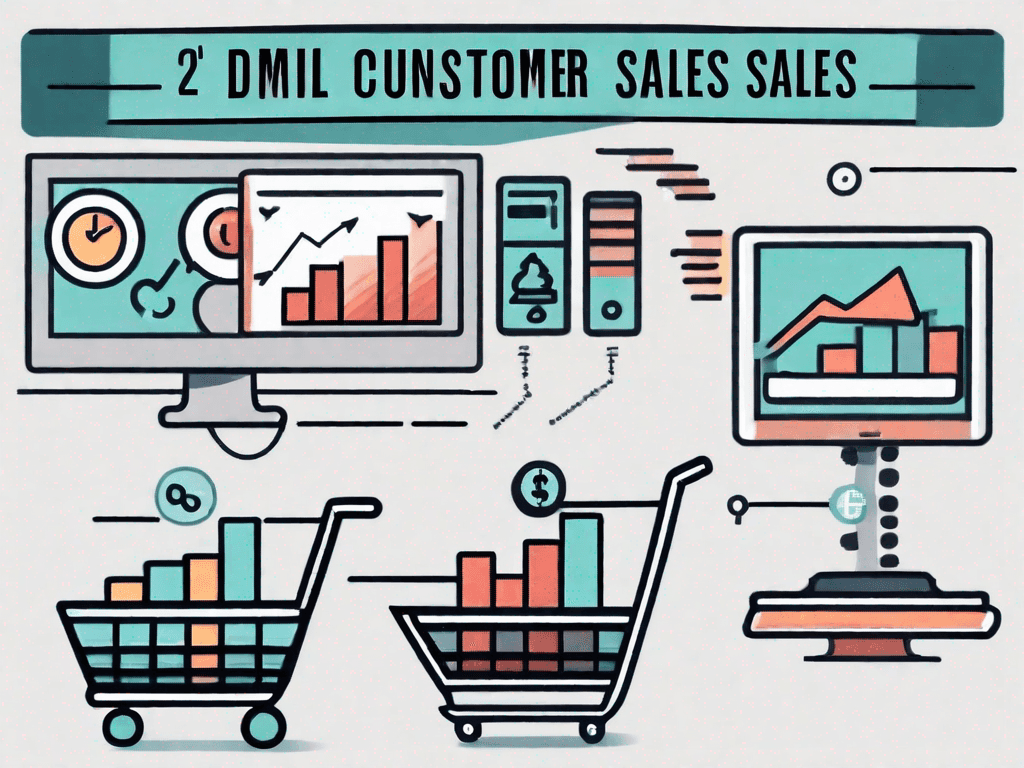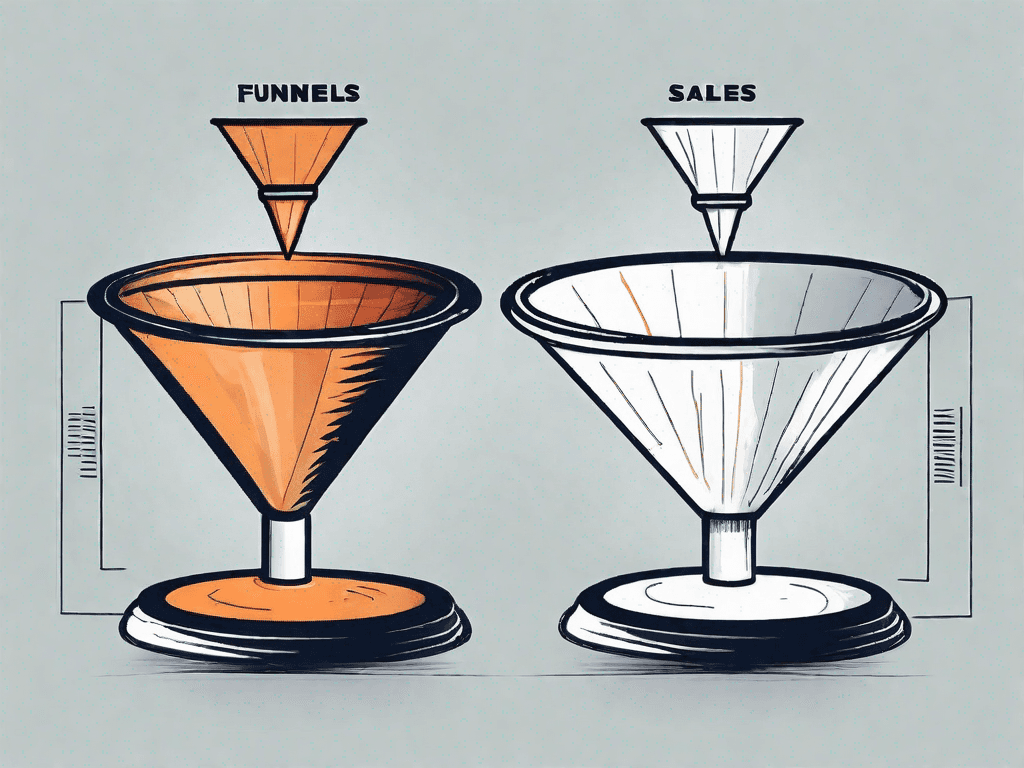
MQL (Marketing Qualified Lead) vs SQL (Sales Qualified Lead): What's the Difference?
In the world of marketing and sales, there are two key terms that are often used interchangeably, causing confusion among professionals: MQL (Marketing Qualified Lead) and SQL (Sales Qualified Lead). While these terms may sound similar, they represent distinct stages in the lead generation and conversion process. Understanding the difference between MQL and SQL is crucial for businesses to effectively target and nurture leads, ultimately driving revenue growth.
Defining MQL (Marketing Qualified Lead) and SQL (Sales Qualified Lead)
1.1 - What is MQL (Marketing Qualified Lead)?
MQL, which stands for Marketing Qualified Lead, refers to a lead that has been determined to be more likely to become a customer based on specific criteria or actions taken. MQLs are typically prospects who have expressed interest in a business's products or services and have engaged with marketing efforts, such as downloading an e-book, subscribing to a newsletter, or attending a webinar. These leads have shown some level of engagement but may not be fully ready to make a purchase.
When it comes to identifying MQLs, businesses often use lead scoring systems. These systems assign points to various actions and behaviors exhibited by prospects, allowing marketers to prioritize leads based on their level of engagement. For example, downloading a whitepaper might earn a lead 10 points, while attending a webinar could be worth 20 points. By assigning values to different actions, marketers can gauge the level of interest and engagement of each lead.
Once a lead reaches the MQL stage, marketing teams can nurture them further through targeted campaigns and personalized content. This nurturing process aims to educate and build trust with the leads, gradually moving them closer to becoming SQLs (Sales Qualified Leads).
1.2 - What is SQL (Sales Qualified Lead)?
On the other hand, SQL, or Sales Qualified Lead, represents a lead that has passed the marketing stage and is deemed ready for direct engagement with the sales team. SQLs have demonstrated a higher level of interest and intent to purchase, often through actions like requesting a product demo, contacting sales for pricing information, or submitting a detailed inquiry. These leads have moved deeper into the sales funnel and are more likely to convert into paying customers.
When a lead transitions from being an MQL to an SQL, it indicates that they have met certain criteria defined by the sales team. These criteria can vary depending on the business and industry but generally involve factors such as budget availability, decision-making authority, and a clear need for the product or service being offered.
At the SQL stage, sales teams take over the lead nurturing process and focus on converting these leads into customers. This involves personalized sales outreach, tailored product demonstrations, and addressing any specific concerns or questions the SQL may have. The goal is to guide the SQL through the final stages of the sales process and ultimately close the deal.
It's worth noting that not all MQLs will become SQLs, as some leads may not meet the necessary criteria or exhibit enough interest to move forward in the sales process. However, the MQL stage remains crucial for identifying potential customers and nurturing them until they are ready for direct sales engagement.
What's the difference between MQL (Marketing Qualified Lead) and SQL (Sales Qualified Lead)?
Now that we have defined MQL and SQL, let's delve into their key differences:
Definition and Purpose: MQLs are leads that have shown interest and engagement with a business's marketing efforts, while SQLs are leads that have been deemed ready for direct sales engagement. MQLs are primarily focused on nurturing leads and providing them with valuable information, while SQLs are focused on converting those leads into customers.
Let's take a closer look at MQLs. These leads are typically generated through various marketing channels such as email campaigns, content marketing, social media, and search engine optimization. When a prospect interacts with these marketing efforts by downloading a whitepaper, subscribing to a newsletter, or attending a webinar, they are considered an MQL. The purpose of MQLs is to build a relationship with these prospects, educate them about the business's products or services, and guide them through the sales funnel.
On the other hand, SQLs are the cream of the crop when it comes to leads. These leads have not only shown interest in the business's marketing efforts but have also demonstrated a higher level of intent to purchase. SQLs are often identified through actions such as requesting a demo, filling out a contact form, or initiating direct contact with the sales team. The main goal of SQLs is to convert them into paying customers through personalized sales efforts.
Level of Engagement: MQLs have demonstrated some level of interest or engagement with the business's marketing materials, but they may not be fully ready for a sales conversation. This means that while they have shown initial interest, they might still require more nurturing and information before they are ready to make a purchasing decision. MQLs can be at different stages of the sales funnel, from awareness to consideration, and they need to be guided through each stage to increase their conversion probability.
SQLs, on the other hand, have exhibited a higher level of interest and intent to purchase, making them more likely to convert. These leads have already gone through the initial stages of the sales funnel and are now ready for direct sales engagement. They have shown a clear buying signal and are actively seeking a solution to their problem. This higher level of engagement makes SQLs a prime target for sales teams to focus their efforts on.
Handoff between Marketing and Sales: MQLs are typically passed from the marketing team to the sales team once they meet certain criteria, such as reaching a specific lead score or fulfilling predefined actions. This handoff process ensures that MQLs are adequately nurtured before being handed over to the sales team. The marketing team continues to provide valuable information and resources to MQLs, preparing them for the sales conversation.
Once an MQL meets the predefined criteria and is deemed ready for direct sales engagement, they are converted into an SQL. This handoff between marketing and sales teams is crucial for a seamless transition and effective collaboration. The sales team takes over from the marketing team and focuses on converting the SQL into a paying customer. They use their expertise to address the specific needs and pain points of the SQL, providing tailored solutions and closing the deal.
Conversion Probability: MQLs have a lower conversion probability compared to SQLs. This is because MQLs require further nurturing and engagement before they are ready to make a purchasing decision. The marketing team plays a crucial role in building trust and credibility with MQLs, providing them with valuable content, addressing their concerns, and guiding them through the buyer's journey. By nurturing MQLs, the conversion probability increases, and they eventually become SQLs.
SQLs, on the other hand, are already in a position where direct sales efforts can be made to close the deal. These leads have shown a higher level of intent to purchase and are actively seeking a solution. The sales team focuses on building a relationship with the SQL, understanding their specific needs, and providing them with personalized solutions. With a higher conversion probability, SQLs are the top priority for sales teams, as they are more likely to result in a successful sale.
Examples of the Difference between MQL (Marketing Qualified Lead) and SQL (Sales Qualified Lead)
2.1 - Example in a Startup Context
In a startup context, an MQL could be a website visitor who signs up for a newsletter or downloads a free resource. They have shown interest in the business's offerings but may not be ready to make a purchase. An SQL, on the other hand, could be a lead who requests a product demo and provides detailed information about their company's needs. They are actively seeking a solution and are ready for direct sales engagement.
2.2 - Example in a Consulting Context
For a consulting firm, an MQL could be a contact who attends a webinar on a specific industry topic or downloads a whitepaper. They have shown interest in the firm's expertise but may still need further education and nurturing. An SQL, in this scenario, could be a lead who requests a one-on-one consultation or submits a detailed questionnaire about their specific business challenges. They are actively seeking consulting services and are ready for a sales conversation.
2.3 - Example in a Digital Marketing Agency Context
In the case of a digital marketing agency, an MQL could be a lead who fills out a contact form for a free website audit. They have demonstrated interest in improving their online presence but might need more information before committing to a comprehensive marketing strategy. An SQL, however, could be a lead who directly contacts the agency, expressing an urgent need for online advertising services and requesting a proposal. They are actively seeking immediate solutions and are ready for direct sales engagement.
2.4 - Example with Analogies
To illustrate the difference between MQL and SQL, let's use the analogy of someone shopping for a new smartphone. An MQL would be comparable to a shopper who visits a few different stores, compares prices, reads reviews, and gathers information from different sources. They are interested in buying a smartphone but may need more time to research and evaluate their options. An SQL, in this analogy, would be a shopper who visits a specific store, approaches a sales representative, and asks specific questions about the features and pricing of a particular smartphone. They are actively considering a purchase and are ready for direct sales assistance.
By understanding and distinguishing between MQL and SQL, businesses can align their marketing and sales efforts to effectively nurture leads and increase conversion rates. Whether you're a startup, consulting firm, digital marketing agency, or any other business, recognizing the nuances between MQL and SQL is crucial for optimizing lead generation and driving revenue growth.


















































































































































